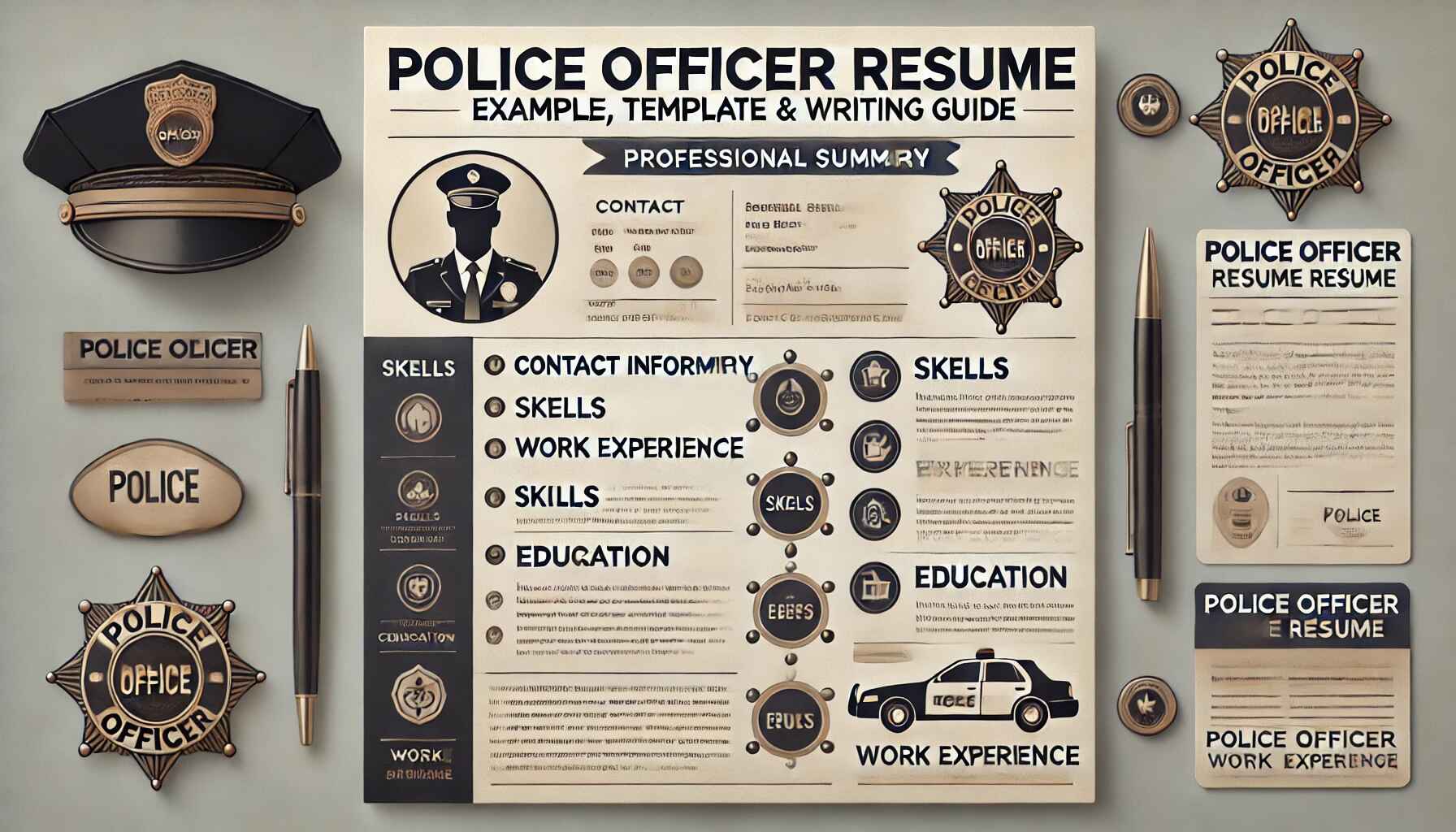Police Officer Resume: Example, Template & Writing Guide
In today’s job market, competitive and well-written resumes can make a difficult choice for the aspiring officer. This guide provides a comprehensive segmentation in developing that perfect police officer resume, including examples, samples, and professional tips to help you stand out.
Why Is A Professional Police Officer Resume So Important?
Often, your resume will be the first impression given to potentially incoming employers. For police officers, this is how their documents can capture their qualifications, skills and experience that will speak of them as an successfully chosen candidate for the office of responsibility, integrity, and expertise. A resume well spent does not just speak, but speaks rather one's commitment to excellence in the law enforcement perspective.
Understanding police officer definition
Police officers have duties which include public safety provision, law enforcement, and communities served. This job assignment has been a combination of physical stamina, quick thinking, and very much strong interpersonal skills. Employees look for beyond the gray mental algae-defined facts, looking for what you probably hope to be a compliment through not just technical qualifications but the applicable values, as well.
Key Skills and Traits Employers Look For
Physical Fitness and Endurance: A crucial component for handling the physical demands of law enforcement.
Communication and Interpersonal Skills: Essential for de-escalating conflicts and fostering community relationships.
Decision-Making and Problem-Solving: Vital for navigating high-pressure situations effectively.
Steps to Write a Standout Police Officer Resume
Researching Job Requirements
Begin by thoroughly reviewing job postings to identify the specific qualifications, skills, and attributes employers seek. Tailor your resume to align with these expectations.
Structuring Your Resume
Choosing the Right Format
Select a format that highlights your strengths. Chronological resumes emphasize work experience, while functional resumes focus on skills.
Highlighting Your Contact Information
Ensure your contact details are accurate and prominently displayed. Include your full name, phone number, email address, and LinkedIn profile if applicable.
Writing an Engaging Summary
Craft a compelling summary that encapsulates your career highlights and aligns with the job description. This section should immediately capture the recruiter’s attention.
Listing Relevant Work Experience
Prior Law Enforcement Roles
Detail your responsibilities and achievements in previous law enforcement positions. Quantify your accomplishments where possible.
Military or Related Experience
Highlight any military service or roles that demonstrate transferable skills, such as discipline and leadership.
Showcasing Your Education and Training
Criminal Justice Degrees
Include degrees and academic qualifications that bolster your credentials.
Specialized Police Training
Mention certifications and specialized training, such as firearms proficiency or crisis intervention.
Including Key Skills
Incorporate both hard and soft skills relevant to the role. Examples include investigative techniques, teamwork, and cultural sensitivity.
Adding Certifications
List certifications such as First Aid, CPR, or advanced law enforcement training programs.
Common Mistakes to Avoid
Overloading with Unnecessary Details
Focus on quality over quantity. Avoid cluttering your resume with irrelevant information.
Neglecting to Tailor the Resume
Customize your resume for each job application to address specific requirements.
Forgetting to Proofread
Eliminate errors to ensure a professional presentation. Typos and grammatical mistakes can undermine your credibility.
Example Police Officer Resume
[Provide a detailed example of a police officer resume tailored to the guide above. Include sections such as Summary, Experience, Education, Skills, and Certifications.]
Best Template for a Police Officer Resume
Chronological Template
Focuses on work history, ideal for those with extensive law enforcement experience.
Functional Template
Highlights skills and abilities, suitable for career changers or individuals with limited experience.
Tips for Optimizing Your Resume for Applicant Tracking Systems (ATS)
Use keywords from the job description.
Avoid complex formatting that may confuse ATS software.
Keep file types compatible (e.g., PDF or Word).
FAQs About Police Officer Resumes
What Should Be Included in a Police Officer Resume?
Your resume should feature your contact information, summary, work experience, education, skills, and certifications.
How Can I Highlight Transferable Skills?
Focus on skills that apply across industries, such as leadership, problem-solving, and communication.
Are There Specific Formats for Police Officer Resumes?
Yes, chronological and functional formats are the most common. Choose one that best suits your background.
How Do I Address Employment Gaps?
Explain gaps honestly, highlighting any relevant activities such as volunteering or skill development during that time.
Is a Cover Letter Necessary?
While not always required, a cover letter provides an opportunity to personalize your application and showcase enthusiasm.
What Keywords Should I Use in My Resume?
Incorporate industry-specific terms such as "law enforcement," "community policing," and "criminal investigations."
Conclusion
Crafting a compelling police officer resume is essential for securing your desired role in law enforcement. By following this guide, you can create a document that not only meets but exceeds employer expectations, setting you apart as a top candidate.









